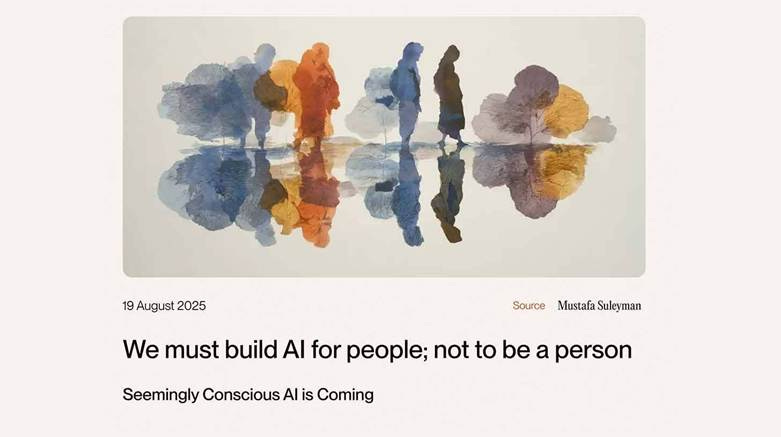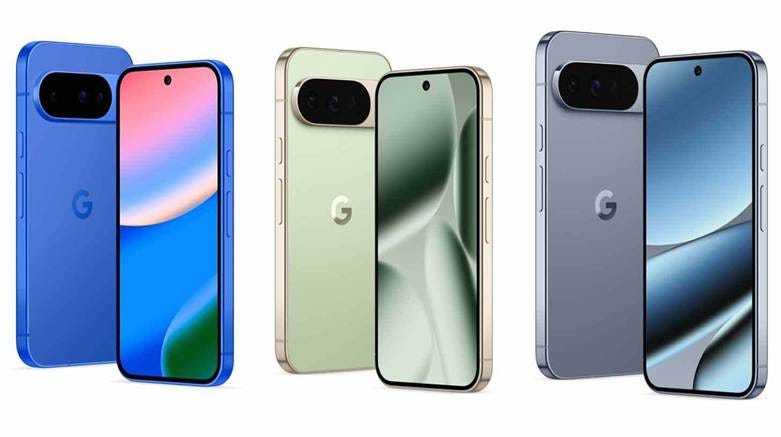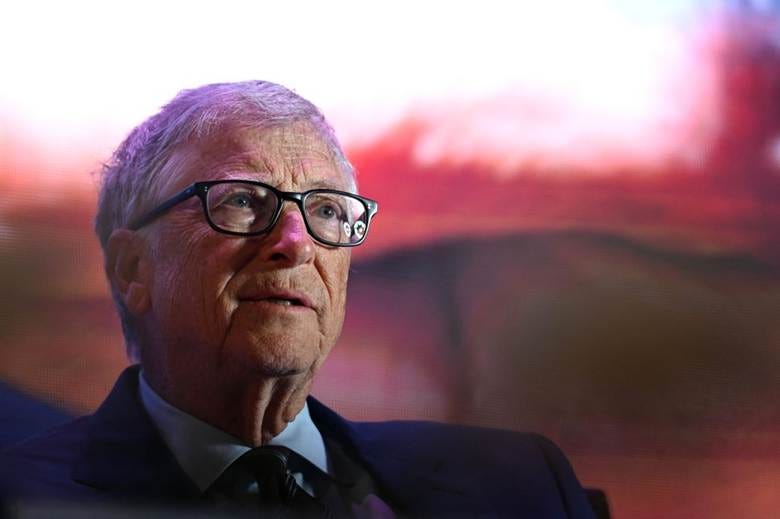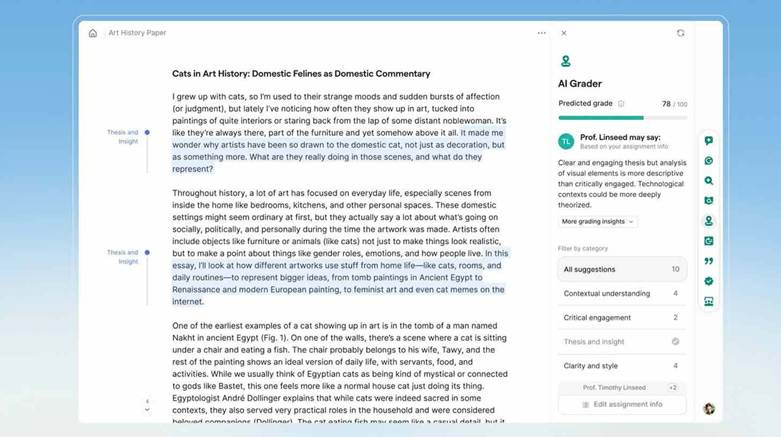We are honored to count you among the 1+ MILLION readers of our weekly newsletter. Please help grow our community by inviting your friends to subscribe.
If you’re new here, we celebrate the ways Artificial Intelligence is making our world more Human. Make sure you check out my new book and community.
This week’s 5 top stories you can't miss:
1️⃣ Microsoft exec warns about 'seemingly conscious' AI
Microsoft AI CEO Mustafa Suleyman published an essay warning about "Seemingly Conscious AI" that can mimic and convince users they’re sentient and deserve protections, saying they pose a risk both to society and AI development.
Key Takeways:
Suleyman argues SCAI can already be built with current tech, simulating traits like memory, personality, and subjective experiences.
He highlighted rising cases of users experiencing “AI psychosis,” saying AI could soon have humans advocating for model welfare and AI rights.
Suleyman also called the study of model welfare “both premature and frankly dangerous”, saying the moral considerations will lead to even more delusions.
The essay urged companies to avoid marketing AI as conscious and build AI “for people, not to be a person.”
My Take: Suleyman is taking a strong stance against AI consciousness, a contrast to Anthropic’s extensive study of model welfare. But we’re in uncharted waters, and with science still uncertain about what consciousness even is, this feels like closing off important questions before we've even properly asked them.
2️⃣ New Google Pixel lineup goes big on AI
Google just unveiled the Pixel 10 lineup at its star-studded ‘Made by Google‘ event, powered by a new Tensor G5 chip and packed with 20+ AI features, including advanced photo editing, ‘Magic Cue’ suggestions, live translations, and more.
Key Takeways:
A new ‘Visual Guidance’ upgrade allows Gemini Live to give real-time visual cues on a user’s phone screen.
The Pixel 10 family gains conversational photo editing capabilities via natural language prompts, rumored to be the hyped nano-banana model.
Magic Cue proactively surfaces context across apps like Gmail, Calendar, and Messages, suggesting replies with info like flight details or restaurant bookings.
Voice Translate transforms phone calls in real time across 10 languages, preserving the speaker's actual voice rather than robotic translations.
Google’s new Tensor G5 chip delivers 60% faster AI processing with a 4B parameter Gemini Nano model running entirely on-device for privacy.
Other features include an AI-powered Pixel Journal app, NotebookLM integration, AI photography tools, and more.
The lineup features three different variations (Pixel 10, Pixel 10 Pro, and Pixel 10 Pro XL), starting from $799-$1199.
My Take: It’s hard to overstate the drastic difference in AI features now available in Google’s lineup compared to Apple. Google’s Rick Osterloh even seemingly took a shot at the rival, noting “a lot of broken promises” with AI in phones. Google continues to ship, making Apple’s issues an even bigger setback in the smartphone wars.
3️⃣ Bill Gates backs Alzheimer's AI challenge
Microsoft co-founder Bill Gates is funding the Alzheimer’s Insights AI Prize, a $1M competition to develop AI agents that can autonomously analyze decades of Alzheimer's research data and accelerate discoveries.
Key Takeways:
The competition is seeking AI agents that autonomously plan, reason, and act to “accelerate breakthrough discoveries” from decades of global patient data.
Gates Ventures is funding the prize through the Alzheimer's Disease Data Initiative, with the winning tool to be made freely available to scientists.
The competition is open to a range of contestants, including both individual AI engineers and big tech labs, with applications opening this week.
My Take: Google DeepMind CEO Demis Hassabis has said he envisions “curing all disease” with AI in the next decade, and Gates is betting that AI agents can help accelerate Alzheimer’s research right now. The free release requirement also ensures that discoveries benefit global research instead of being locked behind corporate walls.
🔷 I’m honored to join EOT – Electronics of Tomorrow Expo 2025 in Denmark this September as a keynote speaker.
This event brings together more than 18,500 leaders, innovators, and decision-makers to explore the future of electronics and technology.
Here’s where you can find me: “Making our world more human with technology” — part of the Future Perspectives track on the geopolitical shifts shaping our industry. Meet & Greet + Book Signing: Right after the panel.
📍 MCH Messecenter Herning, Denmark 📅 September 30 – October 2, 2025
If you’ll be there, I’d love to connect in person!
4️⃣ Microsoft Excel gets an AI upgrade
Microsoft is testing a new COPILOT function that gives broader AI assistance directly into Excel cells, letting users generate summaries, classify data, and create tables using natural language prompts.
Key Takeways:
The COPILOT function integrates with existing formulas, with results automatically updating as data changes.
COPILOT is powered by OpenAI’s gpt-4.1-mini model, but cannot access external web data or company documents with inputs staying confidential.
Microsoft cautioned against using it in high-stakes settings due to potentially inaccurate results, with the feature also currently having limited call capacity.
The feature is rolling out to Microsoft 365 Beta Channel users, with a broader release for Frontier program web users dropping soon.
My Take: Millions interact with Excel every day, and the program feels like one of the few areas that has yet to see huge mainstream AI infusions that move the needle. It looks like that might be changing, with Microsoft and Google’s Sheets starting to make broader moves to bring spreadsheets into the AI era.
5️⃣ Grammarly’s new AI agents for writing
Grammarly just released eight new AI agents that act as intelligent writing collaborators, automatically assisting both students and professionals across tasks like citations, grading, proofreading, plagiarism detection, and more.
Key Takeways:
Agents include Reader Reactions, which predicts confusion a reader may have, and AI Grader for giving feedback and grades based on rubrics/course info.
A Plagiarism Checker agent queries databases and published works to cross-reference writing, and an AI Detector agent grades writing on how human it is.
All agents operate within Grammarly Docs, a new “AI-native writing surface” that provides targeted assistance throughout the writing process.
The agents are rolling out to Grammarly’s Free and Pro tiers immediately, with the AI Detector agent and Plagiarism Checker only available to paid users.
My Take: The education system is scrambling to balance AI with genuine learning, while workplaces are moving to AI-first skillsets. Writing agents could help bridge that divide, giving users real skills alongside automated help to prepare for a world where knowing when and how to use AI matters more than avoiding it entirely.
Which of these news stories resonates most with you?
Let us join hands to make our world more human! — Pascal
#artificialintelligence #intelligentautomation #futureofwork #AI #automation #management #technology #innovation










Exciting to see the Co-Pilot / Excel tie up, if that can be made to work seamlessly it will have a massive effect directly into the daily work - as you say - of millions. 700 million in fact!
Love it!